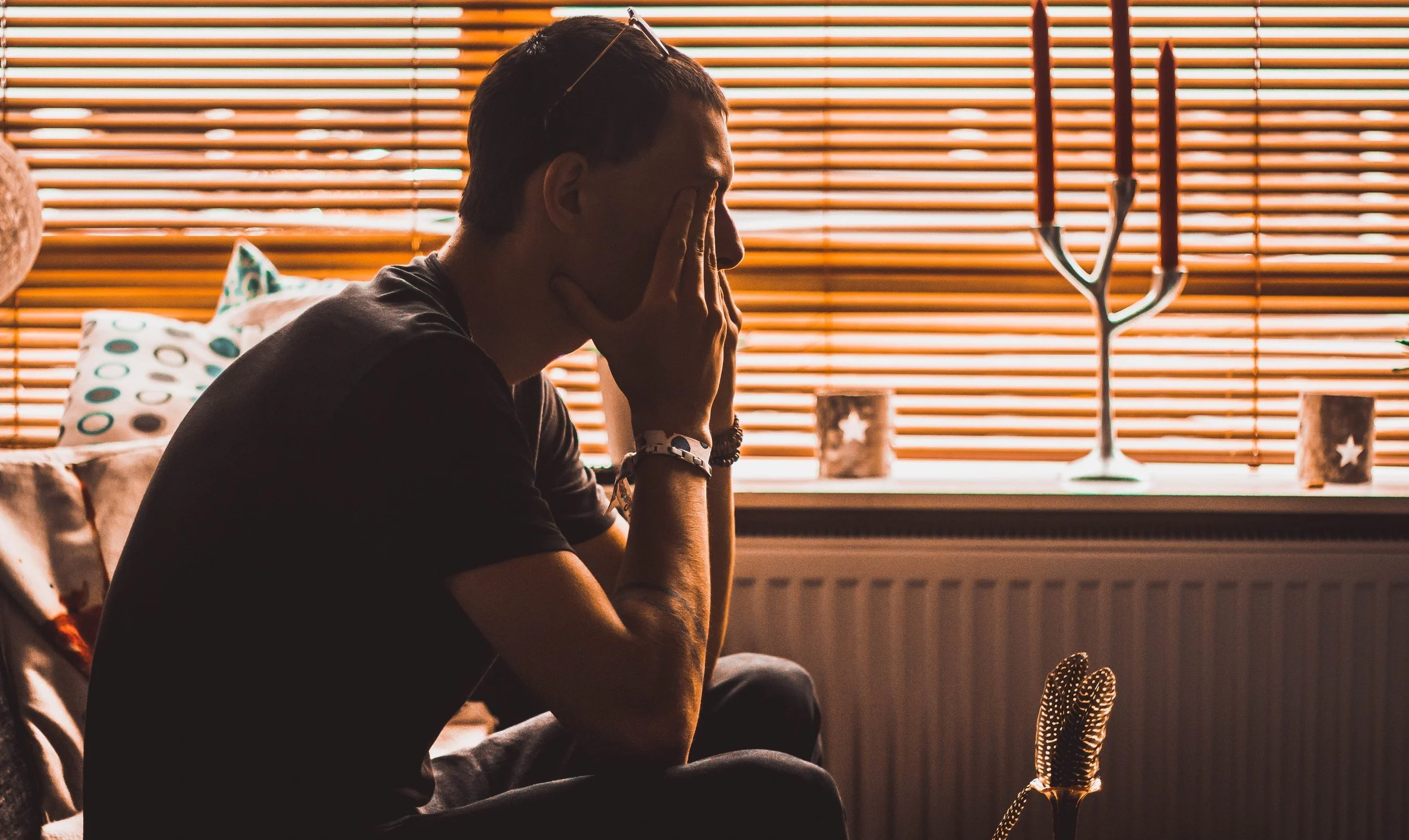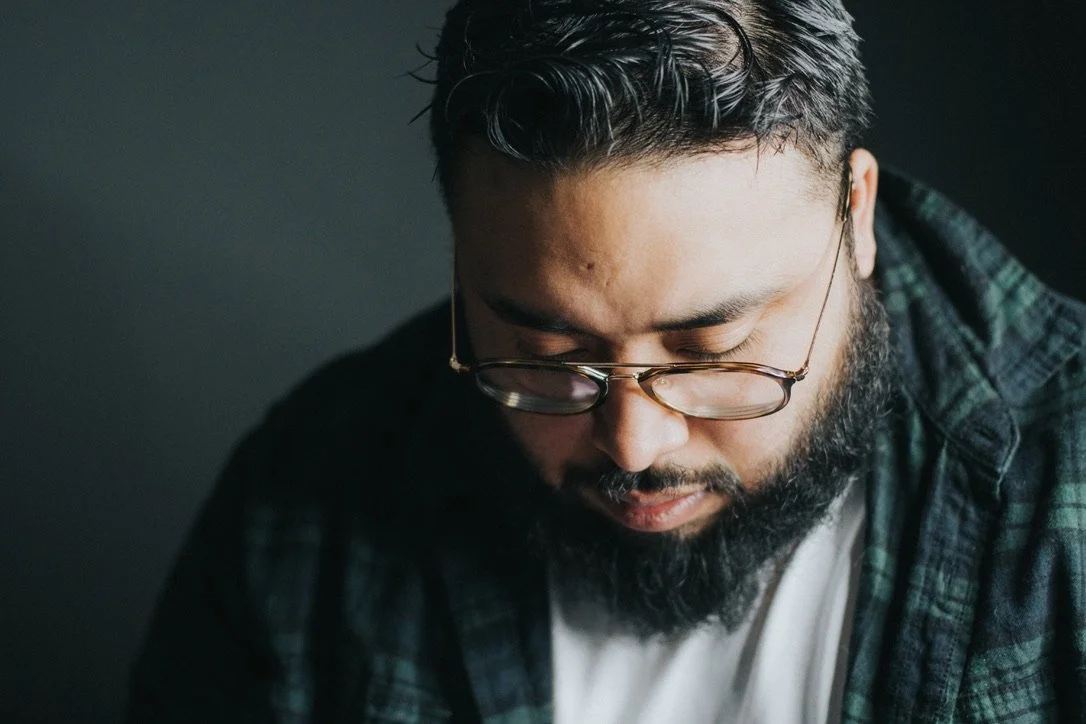
The Blog—Real-life riffs on anxiety, resilience, and being fully present
Looking for the blog? You found it—let’s dig in
I’m Victoria Wallace Schlicht—California-licensed Marriage & Family Therapist and certified Somatic Experiencing® Practitioner—something like a nervous-system whisperer minus the white cowboy hat..
I help anxious, high-functioning adults ditch the “I’m broken” story and find steadier ground. Let’s be honest, nearly everyone you know has either experienced high anxiety or brushed up against it—and how could we not? We’re living in a world that’s spinning faster than we were built to handle. Over-functioning is wearing us out.
We need better tools and a fresh perspective. Good news: I’ve got a stack of both, and I love to share them.
Welcome to my bully pulpit. Each post unpacks the science, stories, and somatic hacks that tame anxious spirals, increase self-regulation, and build real resilience.
Ready for deeper work? Get the scoop on my all-online California practice here.
Is Anxiety Sucking the Joy Out of Your Life
Anxiety can hijack your energy and joy. Discover body-oriented somatic tools to calm a racing mind, rebuild confidence and feel good in daily life—right from home in California.
Explore how anxiety hijacks your joy and drains your energy—and what you can do to reclaim calm, connection, and meaning in your daily life.
When anxiety is running your life it’s time to reach out for help
Noah Buscher-unsplash
There are times in our lives when we need extra help. All of us need some help and support at some point. When it seems like anxiety is getting the upper hand, running the show, running you into the ground, intruding on your thoughts, taking you down a rabbit hole, and stealing your peace of mind and happiness, it's past time to get some support. There is real help for anxiety to help reduce your anxious experience.
Anxiety isn’t just a joy stealer—over time it can even lead to depression
Anxiety, even low levels of constant anxiety, can become a lot to deal with over time. Coping with out of control anxiety, a sense of overwhelm, burnout, or a nagging newer lack of motivation isn't just stressful and disheartening. It can lead to low mood and even depression. Most anxious folks are used to solving problems for themselves and others. When we bump into something we can't solve, it's disconcerting. And even a little alarming.
It seems like we should be able to manage anxiety on our own, like everything else. And we do, for a time. But when we can't solve something as seemingly (or deceptively) simple as anxiety, it hits us where we live. Our sense of self takes a hit. Our sense of competency is undermined. Our (false) sense of control is threatened. When exerting control is how we've coped with life and emotions up to now, we can be caught up short when we can't control our own thoughts and responses. Our own moods and irritability. Our reactivity. Depression often follows unabated anxiety. They travel together. For one thing, dealing with our out of control stress and anxiety is exhausting. It requires a tremendous amount of mental energy. It takes an increasingly physical toll, too. Anxiety and stress are expensive to finance, energetically. When we become discouraged or exhausted enough, our mood may start to falter, as well.
Christopher Lemercier
I specialize in working with highly anxious adults. A therapy incorporating depth-oriented, somatic (or body-oriented), trauma-informed, holistic approaches to reducing anxious experience can improve the overall quality of life. A big part of the work I do is supporting anxious folks on their path to reclaiming their lives. I know this gig from the inside out. When our adaptive skills tend towards anxious management of ourselves, our lives, our jobs, our favorite people, we won't always recognize our own anxiety for what it is. It's just the way we are. It's the way life is. It’s what we feel we “have to” do. We don't know another way.
The things that set us up for anxiety—our history, the situations we've gone through, the lives we've led, our current challenges, which somehow seem too big—also set us up to find it hard to allow help and support. Even therapeutic help. It can feel too vulnerable. Threatening. I get it. Relying on others may have never been possible in the past or has led to painful results and disappointment. There is a better way. A less isolated way. A more connected way. A more interdependent and rewarding way to live. We can work together to create that more satisfying way of living and relating.
Online therapy—you can work through your anxiety from home
Bruno-Emmanuelle—unsplash
Online therapy and telehealth. These days, due to COVID, most therapy is taking place online or over the phone. You can do it from the comfort of your own home. You can even manage it at the office, given you have the privacy to do so. Or from your parked car. There's no commute, so it takes less time on your calendar. Us overscheduled, overfunctioning types appreciate that, don't we? Besides, I get to meet a lot of great dogs!
Therapy is now more convenient and accessible for more people than ever. I am finding it a very popular option for my clients. There's something very powerful about accessing therapy from the comfort of your own home, in your nest, with your favorite mug of something warm to drink, and surrounded by your pets. I’ll share something else with you. After 15 years in private practice as a therapist, and now one of those years fully online,
I can report online therapy works. It’s working just as well for my clients as sitting in my office and we don't have to manage masks in order to work together.
There’s room for more happiness in life
Lowering your anxious experience helps you feel closer to those you love. When we bring our anxiety and overwhelm down, we are able to live more connected and relational lives. Why would that be true? Anxiety takes a lot of energy. It takes a lot of our reserves just to manage ourselves and not lose our shit. Anxious thoughts, worry, and rumination take up a lot of head space. They preoccupy us. Our thoughts will take us out of the present moment. We'll end up alone in our head rather than being with the people we are actually interacting with. They feel our absence. Our inattention. Our irritable distracted edge. And we end up feeling isolated. Isolated, unseen, and alone. There are better relationships on the other side of reducing the hold anxiety has on us today.
You can make the time to feel better now
Caroline Hernandez—unsplash
An investment of your time and energy now can change everything. Given some time, exploring the genesis of your experience, relearning the way you talk to yourself, exploring unreasonable self-expectations, bringing negative intrusive thoughts to heel, working through and establishing boundaries, and utilizing time-tested somatic or body-oriented approaches to relaxation, there is help with reducing anxiety and claiming or reclaiming a happier life. Personal work is a journey of sorts. Therapy and talking to a trained helper can smooth your way and provide a map for moving forward, one step at a time.
I help people who feel bad feel better. Let’s talk. Learn about online anxiety therapy in California.
Anxiety Station Break
When stress has you spinning, mindful pauses and everyday creativity—journaling, drumming, daydreaming—can soothe your system and rekindle joy.
Step out of the anxiety spiral. Discover how mindful pauses—and creative expression—can restore presence, soothe your system, and support self-care.
It’s not all about work and striving
It's really not at all about work and striving. It's not all about work and progress, even in regards to personal growth. Especially in regards to personal growth and your healing journey. You're not going to be able to will yourself into the next iteration of your life or yourself. Or push past anxiety in any meaningful and helpful way. Your anxious experience is here as your teacher, in my opinion, and it is a very patient task masker. Anxiety will wait for you to catch on to the changes that need to be made.
When we’re mired in stress, anxiety, and overproducing, we lose track of ourselves
A lot of us anxious folks have forgotten who we are. We've forgotten what gives us pleasure beyond the pleasure of finishing the job or making the next deadline. We've forgotten our old passions, forgotten what gives us joy, lost track of our playfulness, and mistaken productivity for the source of our happiness. Instead, we work. And work. We manage ourselves and others. We worry and problem solve. We create problems to solve. We dive into our To-Do lists with fervor and grab our dopamine hits there.
Creativity and pleasure can be your greatest tools in reducing overwhelming anxiety
Building time for creativity into your day can help you dig out of your anxious rut. Actually doing creative activities such as journaling, doodling, gardening, painting, or cooking can create a lot of ease in the nervous system. Here's the thing, though, that creative moment can also include daydreaming, dancing, mindful attention to beauty and the quality of light around you, singing, humming, and whistling. In fact, drumming is excellent for altering your sense of time and awareness of self.
Bit by bit, life can become more vibrant
Clem Onojeghuo on Unsplash
Allowing your mind to wander creates a sense of spaciousness and ease. Creates a sense of possibility and potentiality. Creates a sense of optimism. It allows the nervous system to settle. Makes room for something other than worry and busyness. Increases our resiliency. Allows the mind to empty and makes room for a renewed sense of energy and vitality. Slipping into the zone while engaged in creativity, creative thought, movement, music, the contemplation of beauty and nature, is a form of mindfulness and brings with it rewards. We can learn to create more space in our lives for ourselves and in so doing, anxiety can start to slip away. In it's place, we find more energy is available with which to explore life more fully. To live. And that is, after all, the point.
I help people who feel bad feel better. Let’s talk. Learn about online anxiety therapy in California.
Why Somatic Experiencing: Anxiety Reduction
Discover how Somatic Experiencing® taps your body’s wisdom to soothe anxiety. Online therapy across California shows you step-by-step self-regulation.
A Body-First Approach to Calming High-Functioning Anxiety Online
Key takeaway: You’re not the only one. Explore why anxiety can feel so isolating and how nervous system awareness can shift your experience of being “too much.”
Victoria Wallace Schlicht-mixed media poster art
What is Somatic Experiencing
Somatic Experiencing® (SE) is a holistic, naturalistic, body-oriented therapy that directly addresses the manner in which your body and nervous system have stored your life experiences, including trauma and other stressors, and held them in the body. All your experiences, positive and negative, are held in your body. At some level, we all already know this.
These unprocessed, often unrecognized experiences fuel your anxiety, panic, sensations, physical and emotional pain, thoughts, beliefs, and behaviors. Based on 45 years of research and clinical application, Somatic Experiencing allows us to therapeutically harness your body as a primary healing agent and start to release and break down these stuck impulses in your nervous system.
Why Body-Oriented Therapy Beats Talk Alone for Anxiety
We can use Somatic Experiencing, your own mindful regard of your body and its sensations, to notice and track what is happening in your body, to allow these experiences to resolve. More importantly, and more powerfully, you can utilize SE to notice what is always already whole and well in your body and in your life. You can notice and champion your own innate well-being and strengthen your resiliency. This. This is the path to healing, wholeness, and a more deeply realized life.
Healthy Anxiety vs. Runaway Anxiety—Know the Difference
Dennis Alvear Perez —unsplash
Why are men and women using body-oriented psychotherapy for anxiety and panic attack? Because it works. If you're anything like the highly anxious adults I see in my practice every day, your experience of anxiety is felt strongly in the body. Overwhelmingly so. Anxiety can be a highly uncomfortable way to exist. You experience it in your gut, in the tightness in your chest and throat, breathlessness, through your racing heart, in your racing thoughts, and in the type and quality of thinking that is stealing your balance and happiness, and in your sense of debilitating overwhelm. At its worst, you may find it hard to even function and perform your daily tasks. High anxiety has the potential to steal your joy in the present moment, rob you of comfort and connection, disrupt your primary relationships.
When Anxiety Runs the Show, Call a Nervous-System Trainer
When anxiety has taken over, dictating how you feel, what you can and cannot do, some expert support is overdue. In addition to being trained as a Depth and Systems therapist, I have been fully trained in and daily utilize Somatic Experiencing, a body-oriented trauma and healing modality. In fact, I am a certified Somatic Experiencing Practitioner (SEP). It is a 3-year, post Masters, training working with the nervous system to support the healing of big and small traumas. It is also priceless for working with highly anxious nervous systems.
Hermes Rivera—unsplash
Next Step: Online Somatic Therapy for Californians
One thing I love about holistic body-oriented approaches is everyone I know already has a body. No need to acquire one. You already have everything we need in order to create more calm, peace, and comfort in your life. Wouldn't it be nice to learn how to work with both your mind and your body to reduce your anxiety and begin to reclaim your life? Start now and harness your body awareness to learn the deep, deep skills of self-regulation, cultivate resiliency, and get your life back on track. Maybe for the first time. We can do it together, one step at a time.
Ready to calm your body and mind? Book a free 15-minute consult and learn how online Somatic Experiencing® therapy can shrink anxiety—no commute, anywhere in California.
I help people who feel bad feel better. Let’s talk. Learn about online anxiety therapy in California.
Notice Where You’re Okay—Somatic Anxiety Tip
Anxious and overwhelmed? Learn a four-line mantra to ground yourself now—and see how online Somatic Experiencing® therapy can deepen the calm.
A Four-Step Somatic Reset for High-Functioning Anxiety—Perfect for Daily Life and Online Therapy Sessions
Victoria Wallace Schlicht
Key Takeaway: Struggling with anxiety symptoms? Pause, notice what feels OK, and calm your nervous system with this Somatic Experiencing® practice. Online therapy available anywhere in California.
“Take a deep breath”—helpful or hype for anxiety relief?
I hear a lot about deep breathing from my clients in individual sessions and in the therapy groups and Brown Bag meetings I have facilitated. Everywhere my anxious clients turn, they are being told by well-meaning people, self-help books, friends, media, and the mental health field, to take a deep breath. To follow better self-care. To chillax! As if. As if it were actually that simple.
Only it's not. Is it?
You, me, and everyone you know who is still currently inhabiting the planet and is not on life support is managing to breathe. And do it on their own. They're managing to breathe. It doesn't mean they are managing their anxiety.
So, I don't teach breathing as a first place to start when working with anxiety. The whole world wants to talk to you about that and up to the point you hit my online office, it has not been the magic key. The time will come when we will talk about breathing, but we will start elsewhere.
And yet there is something to be found in this simple reminder
Victoria Wallace Schlicht
"Breathe. All we have is now. Relax. You are okay." As a Somatic Experiencing Practitioner and depth therapist specializing in anxiety reduction, I love this. It is a perfect brief format for somatic self care in the face of anxiety. Or just day-to-day stressed out living. Remembering to stop and take a breath, to take a pause, is a great way to address the onset of anxiety. The trick is in noticing you are starting to feel tense, stopping, and remembering to address it in a positive, proactive, compassionate manner.
Victoria Wallace Schlicht
All we have is now: using present-moment focus to soothe anxiety
All we have is now. Our bright, busy, anxious mind runs off into catastrophic thoughts about an uncertain future or ruminates about the past. It can be a challenge to stay in the present moment. "All we have is now" is a perfect reminder to stay present and engaged with yourself and life in the here and now.
This is the perfect time to allow yourself to pause and notice where you are. Notice your surroundings. Notice what you see, and hear, and smell. Notice the sensation of the air on your skin. Notice where, despite the discomfort of anxiety, you feel better in your body. Where do you feel the most calm and neutral? Notice that. As you do so, you will move more freely and clearly towards the present moment.
Train your nervous system to relax—Somatic Experiencing® basics
Relax. When I work with clients to reduce their high anxiety and panic, I do so through a variety of means. You can learn to be more in touch with your nervous system and soothe your anxious body out. When you support your body, you are on your way to reducing your anxiety, becoming more self-regulated, less irritable, and increasing your resiliency and well-being.
Victoria Wallace Schlicht
Notice what’s OK: rewiring the brain away from catastrophic thinking
You are okay. Noticing this, reminding yourself of this is gentle mantra or affirmation, can be an important skill to cultivate in your day-to-day life. Notice what is okay in your body—or merely neutral. Notice what is okay in your circumstance. Despite it all, some things are okay. You are already talking to yourself all day, every day, but the kind of anxious, negative, self-critical statements most of us employ are not helpful. We can teach the brain over time, to begin to let go of some of our habitual negative and catastrophic thoughts. As we do so, things begin to change. Life looks different. We feel different.
A four-line mantra for daily grounding (online or anywhere)
Victoria Wallace Schlicht
"Breathe. All we have is now. Relax. You are okay." is not a solution or a destination. It is a tool, a reminder, and it can take you to the threshold of feeling better. Somatic Experiencing and insight oriented therapy can lead you through the door. It is possible to feel better. To feel less stress. To start to address burnout and over-producing. To notice and support your nervous system. To begin to increase your sense of ease.
Ready to turn this awareness into a lifestyle?
Book a complimentary 15-minute consult and learn how online Somatic Experiencing® therapy across California can calm anxiety—no commute required.
I help people who feel bad feel better. Let’s talk. Learn about online anxiety therapy in California.
Irritability—a Symptom of Anxiety
Irritable, quick to snap, or just plain fried? Learn why anxiety hides behind short fuses and how body‑based therapy restores calm and connection.
Analise Benevides-unsplash
Discover how irritability can be a hidden sign of anxiety. Learn how Somatic Experiencing supports nervous system regulation and emotional resilience.
What anxiety is really for
Honestly, your anxiety isn't going anywhere. It is here to stay. The thing is, like it or not, you need it. Anxiety is hard-wired into your nervous system. Not just your nervous system, but everyone's nervous system. It is part of the original equipment. It's there for a reason. Anxiety is part of the oldest survival systems in the body. It is there to save you. It's there to save your ass every day. Every Single Day. Oh, boy!
Survival wiring: why the most anxious survived
Shannon Vandenheuvel -unsplash
When I talk about the healthy function of anxiety with clients, I talk about survival. Literally. In our earliest days as a species we had to determine what was safe and what wasn't. Which plants were safe to eat. Which people were safe to interact with. Which snakes and insects were poisonous. What water was safe to drink. We needed to be alert to our environment. Constantly. Ready to run. Fight. Flee. Freeze. Hide. Our survival depended on it.
Vigilance was key to surviving in a dangerous, rugged, inherently violent world. Anxiety, manifesting as fear in our bodies, alerted us to danger, fueled our bodies with adrenaline, and sped us on our way, out of danger. Believe me, the most anxious among us were the most likely to succeed at the Survival Game, most likely to live long enough to breed, most likely to rear their children into sexual maturity, most likely to foster the next generation. The Anxious Survived. The anxious survived and we are the happy result. Are you feeling it?
When anxiety overruns its job description
Ben White-unsplash
So, your anxious experience is a function of your survival systems and it's there to keep you safe. Fine. Good. But anxiety was never designed to run your life. When anxiety is doing a lot more than keeping you aware of your environment and thoughtful about your decisions and actions, chances are it is getting out of hand. If your anxious responses within your mind and body are now running your life, running you into the ground, keeping you in a state of high anxiety, stress, rumination, and fear, then it is no longer in service to you. It's time to bring your anxiety to heel.
Irritability—the anxiety symptom nobody talks about
Most of us are generally familiar with the symptoms of over-functioning anxiety. Racing thoughts. Racing heart beat, sweaty palms, non-stop worry or rumination, negative thinking, over-functioning, nervousness, agitation, panic, social anxiety, sleep disruption, demanding and very uncomfortable physical sensations. Life disruption.
We are typically less familiar with the other ways anxiety comes on board to run the show. Controlling behaviors, all or nothing black and white thinking, disruptions in our ability to form healthy attachments and be present and emotionally intimate with those we value most. Overextending ourselves across multiple areas of life. Lack of boundaries with ourselves and others. Feeling taken for granted. Feeling martyred, exhausted, angry, and misunderstood. Sometimes we can become demanding, requiring others accommodate our anxious needs. As that rigid self-control some of us value so highly, starts to flag, we can become irritable and edgy. Needing space to recenter, and perhaps even not realizing it, we move into irritability. Quick to react. Quick to snarl. Quick to lash out.
Arif Riyanto-unsplash
Chronic worry can make us demanding, reactive, and exhausted
Those of us suffering with over-active anxiety (and imaginations), are some of the brightest, nicest, most helpful and capable people you can meet. And some of the most persistent, irritating, irrational people on the planet. Sorry. True story. When we are out of balance in coping with our well-meaning anxious selves, we can become demanding, reactive, and irritable. When things have finally gotten on our last nerve, we brim over and we can get snappish. All of us Anxious Folk can go there, particularly teens and men. Irritable. Dysregulated.
Why teens and men often mask anxiety with anger
Karina Tess—unsplash
While all of us, male and female, who are working through our anxious experience may move into irritability at times, irritability can be a pronounced symptom for some men and teens. Why does this make sense to me? For one thing, our teens are less able to cope with their overwhelming sensations of anxiety and the many concerns they hold. Your teen may not be moved to or able to confide in you, particularly your sons. They may place a high value on the important developmental tasks of individuating and taking life on on their own, they keep it to themselves. "I'll figure it out!" In so doing, their resulting irritability may voice what they are not able or willing to give words to. In the case of teens, those monosyllabic responses can be concealing all kinds of unrecognized and unvoiced worries and concerns, as well as their general hormonal moodiness.
The fact is, our teens don't have enough life experience yet to always be able to know what they need from us or the world around them. The transition from child to teen to adult is an arduous and demanding task to negotiate. And it is constantly changing. Your teen is navigating a world that didn't exist for you. There's a lot going on in their lives and you are a safe enough whipping post when they are overwhelmed and anxious.
Boys need emotional tools, not “toughen-up” lessons
Marina Hanna—unsplash
Although things are changing in our culture, there is still not enough support for men and boys to notice and express what is going on for them. Sometimes, despite our best efforts, we parent boys, from infancy forward, differently than girls. Requiring them to toughen up, responding to them more slowly than we respond to the needs of baby girls. Telling ourselves, "He's such a boy!"
I still run into young men who have been told as children not
to cry, to suck it up.
Recent studies have suggested baby boys actually arrive more sensitive to their environments, more easily negatively impacted by experiences in the early months of life than girls. They need more support, not less. All children need support in learning how to appropriately self-soothe and self-regulate. All children require emotionally present and responsive care givers. All children need encouragement to identify and express their feelings in a healthy, fluid fashion. All children need the opportunity and modeling that allows them to identify their own needs and desires and to ask for support. All children need support and nurturing such as this. All children. Yet, historically, boys have received less of these specific relational and emotional supports. We often default, even unconsciously, to socializing and nurturing boys into silence and stoicism. A false expression of strength. And here in the West, we socialize children, and especially boys, towards individualism. Independence. Autonomy. There's not always much room to learn how to ask for help when needed, how to sort through our feelings, even the sad and bad ones, how to draw on community.
Disconnection fuels anxiety—connection is the antidote
Justin Follis-unsplash
I find men in my practice are anxious to connect. Longing for deeper connections with each other and the people they love. Working to learn. Often, my male clients are working hard to overcome their own beliefs about what it means to be a man in our culture, what it means to feel connected to oneself, what it means to reevaluate what strength truly is. We are working on shame. Guilt. Grief. Loneliness. Allowing sadness to come through and resolve. They are figuring out that disconnection, overriding and stuffing their feelings has led to isolation, anxiety, depression, and a loss of the connection they are so hungry for. This is true for everyone. In many ways, though, men have been largely left on their own to figure this out. Back in the day, and still in some circles, it is counter cultural for men to long for more connection and expression in life.
Modern life overloads an ancient nervous system
We are built for connection. We were designed to be with one another, even the more introverted of us. We were designed to sleep in a puppy pile and have each other's backs. It's part of our innate wiring. We've talked about how healthy, adaptive, appropriate anxious survival responses within our bodies were and are an essential aspect of our ability to survive and thrive on the planet. Yes, this was required. But our sense of connection to one another has always been primary. We developed in family groups of 500 to 1500 where everyone knew everyone. We survived because of these connections, because we were not left to manage on our own, because survival required a group effort and many helpers, many hands, many eyes on the horizon, many people to shoulder the work. Many hearts. We survived together. To be left on your own was a literal death sentence.
Somatic Experiencing and online therapy can calm irritability
Allison Shaw-unsplash
Our nervous systems were not designed for modern life. Life, today, is alien to our actual way of being. You were not designed to hurtle down the road at 65 mph, plugged into a 24/7 world wide crisis-oriented news cycle, largely divorced from the restorative practices of our ancestral communities (deep connection, communal meals, dancing, music, singing, story telling, mentoring, working together, multi-generational and communal child-rearing networks). And yet, here we are. Adrift in the over-stimulating sea of modernit and chaos.
We can't change the world. We can change our personal habits, practices, and ways of being. We can focus on reconnecting to ourselves, reconnecting to our family systems, learning how to be more vulnerable and trusting of each other. We can work through our anxious habits and responses and create deeper levels of satisfaction, ease, and connectedness in our lives. We can know ourselves and one another better, on a deeper level. We can stop working so hard to hold it all in. We can create and learn healthy, productive ways for expressing our emotions and needs. Communicating better. Feeling better. And, yes, feeling less irritable. It's a process. And one worth learning.
I help people who feel bad feel better. Let’s talk. Learn about online anxiety therapy in California.
Online Somatic Therapy for Men in California
Discover how secure online Somatic Experiencing® sessions help California men untangle anxiety, anger, and burnout, tap body-based resilience, and regain steady, authentic strength—no commute, just a private video call away.
Orange County • Secure Online Video Sessions Statewide
Key Takeaway: Men don’t have to tough it out alone—online Somatic Experiencing® therapy helps you tune into your body, release hidden stress, and regain calm, focus, and authentic strength wherever you are in California.
Originally published January 2019. Updated July 2025 to include new insights on well-being and online therapy.
Bruce Mars-unsplash
Is therapy “just for women”?
Hardly. In my 20+ years of depth-oriented practice—and nearly two decades of integrating Somatic Experiencing®—I’ve helped men quietly wrestling with burnout, anger, or grief discover they don’t have to tough it out alone.
Why Many Men Still Struggle in Silence
Feelings are off-limits. Boys learn early to bottle emotions. Cut off from body cues, many men only notice stress after it sparks anxiety, rage, or shutdown.
Support networks are thin. Heterosexual men often lean on one confidant—their partner. Divorce, widowhood, or relocation can leave them with no emotional first-responder.
Health pays the price. Unprocessed stress drives heart disease, reflux, chronic pain, depression, and insomnia.
Numbing is easy. Extra shifts, gaming marathons, alcohol, porn—anything to dodge sadness or failure. Over time the escape hatch becomes its own prison.
Trauma gets buried, not healed. Abuse, combat, accidents, surgeries, attachment wounds: the body remembers even if the mind “moved on.”
LGBTQ+ men face double burdens. Gay, bisexual, and queer men confront the same stoic expectations plus minority stress discrimination, family rejection, and higher trauma rates. (I work extensively with cis gay and queer clients; while I’m an ally to trans men, I refer to trusted colleagues when specialized gender-affirming care is needed).
Seljan Salimova-unsplash
How Somatic Experiencing® Helps Men Reclaim Agency
Feel safely, not endlessly. Tracking body sensations lets you notice emotion in bite-size pieces, preventing overwhelm.
Build true resilience. Expanding your tolerance for strong states—joy and sadness—makes life richer and relationships steadier.
Resolve stored trauma. SE completes fight-flight-freeze loops so old shocks stop hijacking the present.
Channel intense energy. Anxiety, anger, or social discomfort are worked through gradually, giving you a reliable internal “container.”
Somatic means “body.” You have one—and it can become your greatest ally.
Ready to Get Out of Your Head and Back into Your Life?
Lucas Calloch—unsplash
All sessions are secure online video, accessible anywhere in California—from Newport Beach to Napa. If you’re ready to trade tension for grounded strength, let’s talk.
Schedule a free 15-minute consult or call (Most men feel some relief after the first few sessions).
I help people who feel bad feel better. Let’s talk. Learn about online anxiety therapy in California.






























